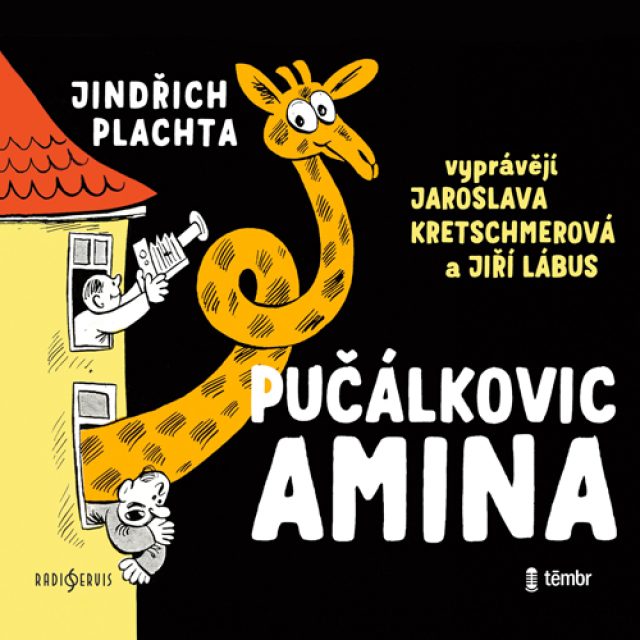Antonín Dvořák
* 8 September 1841 Nelahozeves† 1 May 1904 Prague
Dvořák enriched Czech music with numerous works of fundamental importance. An outstanding composer of symphonies and chamber music, he laid the foundations for the Czech cantata and oratorio; in his songs and choral works he was a lyricist without rival; his best operas belong among the most valuable treasures of Czech dramatic music. His art has won him a place among the world's greatest Neo-Romantic composers.
He came from a family of farmers and small tradespeople who had settled around Nelahozeves. After studying music at the organ school in Prague, he was active for a number of years as a violist in the orchestra of the Provisional Theater and as organist in the St. Vojtěch Church. Between 1875 and 1879 he received a state subsidy, which allowed him to devote himself primarily to composition. It was Johannes Brahms who drew the attention of Berlin publisher Fritz Simrock to Dvořák's talent. Beginning with the Moravian Duets and the Slavonic Dances, op. 46, which Simrock published in 1878, Dvořák became a composer of world renown. Slavic themes opened for him the gates to the world. In eastern folklore the composer discovered new springs of inspiration which he used in a series of works: dances, rhapsodies, the operas Vanda and Dimitrij as well as chamber pieces. One form typical for him was the dumka (meditation), in which brooding music alternated with energetic. One of his most famous is the Piano Trio Dumky of 1890. It was especially foreigners who perceived some "exotic" popular lyricism in the composer’s "Slavonic" music. With his nine symphonies, Dvořák earned himself a place alongside the greatest European composers. His last five symphonies in particular (F major, D major, D minor, G major and E minor) have become part of the permanent repertoire.
After the success of his Stabat Mater in London in 1883, Dvořák composed the cantata The Spectre’s Bride, the oratorio Saint Ludmila and his Requiem for other English festivals. In the early 1890s he was awarded an honorary doctorate in music at Cambridge as well an honorary doctorate in philosophy at Charles University in Prague; he was a founding member of Czech Academy of Arts and Sciences, and he was given the Order of the Iron Crown. His chamber works too – trios, quartets, quintets and sextets -- soon made their way out into the world. Of his instrumental concerti, along with those for piano and violin, the most famous is that for cello (in B minor). Dvořák had moreover a sympathetic ear for the music of native Americans. During his stay in the United States in his capacity as director of the American National Conservatory of Music in New York (1892-1895), he suggested that the new generation of American composers write music in the spirit of their own traditions. It was there that Dvořák composed such famous works as his Symphony No. 9 in E minor "From the New World," his String Quartet in F major, the Biblical Songs and the Humoresques, in all of which we can hear elements of the music of the American continent. The melody of the Largo from the New World Symphony was even chosen as the state song of Iowa. During the last years of his life Dvořák devoted his attention primarily to his work at the Prague conservatory. His students included Josef Suk, Vítězslav Novák, Oskar Nedbal, Rudolf Karel and Julius Fučík.
In his new works he turned back to his Czech roots. Evidence for this are the symphonic poems The Water Goblin, The Noon Witch, The Golden Spinning Wheel and The Wild Dove, inspired by the stories in Karl Jaromír Erben’s ballads. Of his ten operas, the most stage-worthy are Dimitrij (1882, 1894) on a story from Russian history; Jakobín (1888,1895), which recreates the atmosphere of a little country town; the fairy tale The Devil and Kate (1899); and the much loved Rusalka (1900). For his last opera, Armida (1903), the composer turned to a story from the time of the crusades.
Dvořák’s music is permeated by extraordinary inventiveness, exquisitely rich lyricism and harmonic beauty and structural perfection deriving from traditional forms. Artistically the composer was close to Brahms, to whom he was also bound by personal friendship. Throughout his life Dvořák guided his behavior by the moral rules of the Bible, never doubting the existence of God. He was alert to the progress of civilization and had a boundless love for nature.
Author: Milan Kuna
Nejposlouchanější
E-shop Českého rozhlasu
Kdo jste vy? Klára, nebo učitel?
Tereza Kostková, moderátorka ČRo Dvojka


Jak Klára obrátila všechno vzhůru nohama
Knížka režiséra a herce Jakuba Nvoty v překladu Terezy Kostkové předkládá malým i velkým čtenářům dialogy malé Kláry a učitele o světě, který se dá vnímat docela jinak, než jak se píše v učebnicích.




